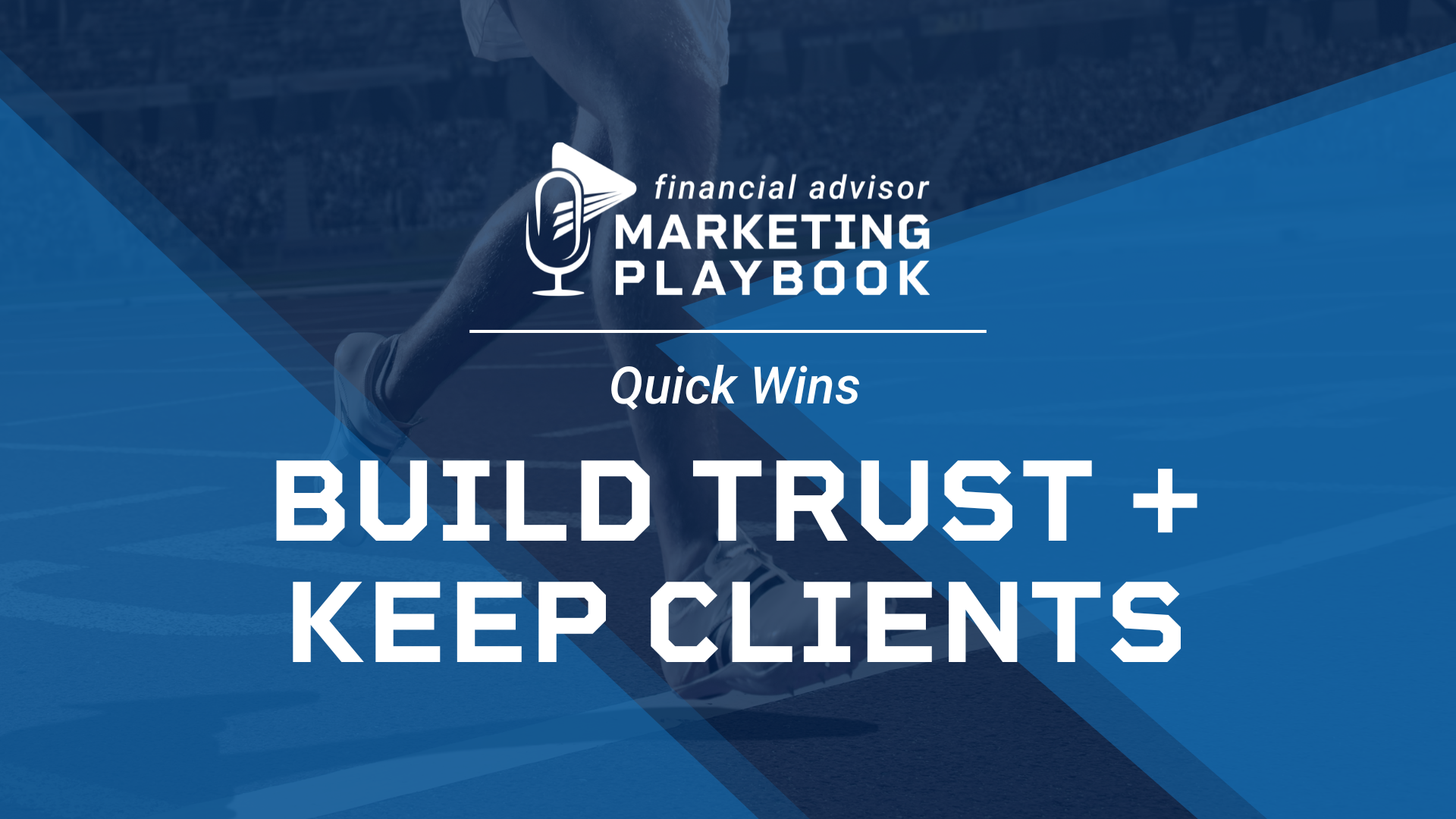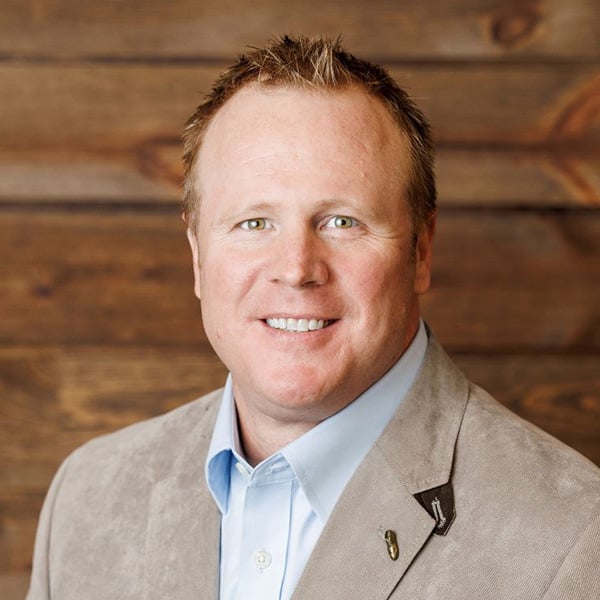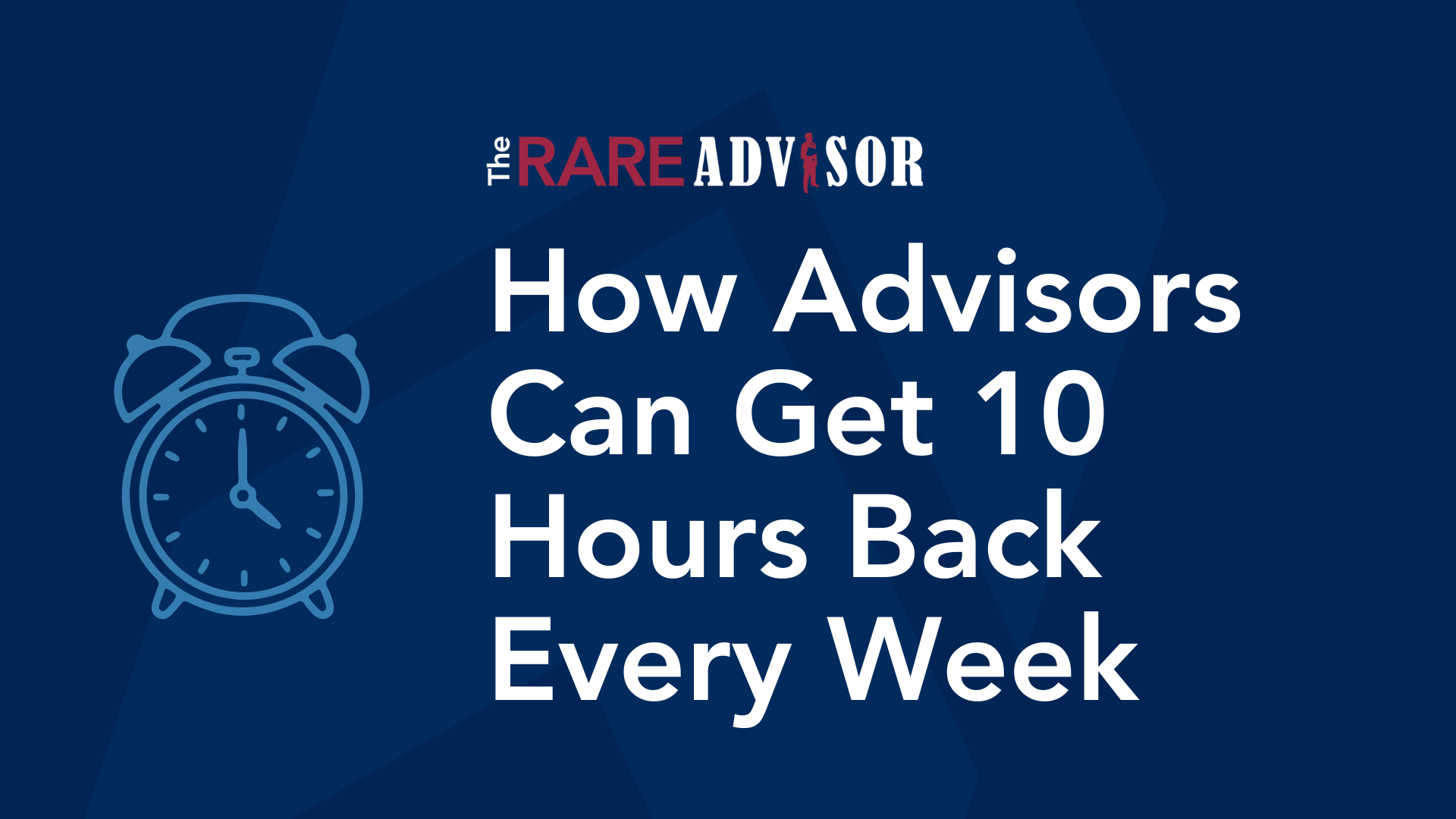How Financial Advisors Can Build Trust and Keep Clients

In this episode, Mark Mersman shares proven communication strategies for financial advisors to strengthen trust, improve client retention, and increase referrals. You'll discover four things your best clients likely believe—and why most clients leave not because of poor advice, but because of surprises or unclear expectations. Learn how to “future pace” your client relationships, clearly define your value, and proactively guide clients through life’s financial changes. If you're looking to grow your financial advisory practice and build long-lasting relationships, this video is a must-watch.
Summary:
In this episode, Mark Mersman explores a critical concept for financial advisors: understanding and reinforcing the value of the advisor-client relationship—especially in the eyes of your best clients. He begins by identifying four key truths that apply to nearly every top-tier client, and offers practical strategies to build trust, retain clients, and encourage referrals.
First, clients don’t want to be surprised. When financial advisors fail to communicate effectively, clients may feel uncertain or blindsided, even if the advice itself is sound. Most client departures stem from unmet expectations—not poor performance. Therefore, one of the most important jobs a financial professional has is reducing surprises and creating clarity in the financial planning experience.
Second, many clients don’t truly understand the full value of working with a financial advisor. This isn’t necessarily their fault; the financial services industry is filled with varied titles, roles, and approaches, making it difficult for the public to know what to expect. Because of this ambiguity, clients often create assumptions based on past experiences or limited definitions. When you initially won them over, it likely happened because you demonstrated value beyond their expectations. However, that understanding fades over time unless you consistently reinforce it.
Third, clients struggle to explain what you actually do. Even the best clients—those who like and trust you—can’t always articulate the range of services you offer, especially to others. This often results in being pigeonholed into a narrow role (“He helped us with a rollover” or “She handles our investments”) and limits the opportunities for referrals. It's critical that you equip your clients with language and clarity to describe your broader role. This helps them not only appreciate your value, but also become better advocates for your firm.
Fourth, clients originally hired you to solve a specific set of problems they were facing at that time in their life. But as life changes, so do their needs. The advisor’s role is not just to solve today’s issues but to anticipate and guide clients through future challenges. This requires a technique known as “future pacing”—setting expectations for what the relationship will look like over time, and showing how you'll continue to provide value as their circumstances evolve.
Future pacing isn’t just a communication strategy; it’s a proactive way to build trust and demonstrate your long-term commitment. It begins at the first interaction with a prospect. Clients need to clearly understand what happens in the first meeting, what comes next, and what the overall planning process looks like. Creating a simple, visual roadmap or service matrix can make your value tangible and reduce uncertainty.
Even after onboarding, it’s important to maintain that clarity. The early months of a client relationship tend to be busy—opening accounts, transferring assets, meeting your team—which creates a natural sense of value. But once the activity slows, so does the visibility of your work. Without consistent reinforcement, “loyalty fatigue” can set in. That's why you must clearly articulate your ongoing service model: how often you’ll meet, what topics will be covered, and how you’ll respond to key life events.
Mersman suggests mapping out these future scenarios in advance—like the death of a spouse, a new grandchild, or retirement—and sharing how your firm will be there during those milestones. This assures clients that you’re not only solving today’s problems but are prepared for tomorrow’s challenges too.
To maintain this trust, regular communication is key. A simple quarterly check-in call, covering personal topics like family, occupation, recreation, and money, can reveal important changes that trigger new planning needs. Over time, this habit strengthens trust, reinforces your value, and makes it more likely that clients will refer others.
Ultimately, future pacing and intentional communication create clarity, consistency, and connection. That’s how you keep your best clients—and earn the next ones, too.
Transcript:
Mark Mersman, Chief Marketing Officer at USA Financial - So I wanna talk a little bit about your best clients. And when we think about this, when you really look at who your best clients are, let's get into a little bit of their mindset. So there's a few things that we can pretty confidently say that we know about almost all of your best clients. Whether or not, especially if you think through when you first met with them, what we know is they don't want to be surprised. When you think about your existing clients now, and if you've ever lost a client, the reality is that clients don't leave you because you did what you told them you were going to do. They leave you because they were surprised by something, whether it was a lack of communication or whatever that might be. So we know that your best clients don't want to be surprised and really your job as a good financial professional for them is to help reduce the surprises in their lives, especially their financial lives. So keep that in mind. They don't want to be surprised.
So what else do we know? None of them really know the true value of working with a financial advisor. And that isn't necessarily their fault. It's not even, you know, always. I think that this is more of an industry problem because the term financial advisor, financial planner gets thrown around so loosely. And there are so many different paths that, that one can go in this industry. So they don't really know the true value of working with a financial advisor. And so left to their own devices, they're going to make certain assumptions about the value of working with a financial advisor. And chances are when you won that client over for the first time, it was because you demonstrated to them that there was much more value to working with you than whatever their current situation was. But they don't really know the true value of working with a financial advisor. So that's incumbent upon you as the advisor to educate them and help them understand what your role is going to be in their lives.
Thinking about that same concept, what we also know about the vast majority of your clients is that they can't describe what you do very well to others. You know, if a friend of theirs were to ask them, "Hey, what is your financial advisor do?" it is very hard for them to articulate what it is. And oftentimes they might pigeonhole you, whether that's pigeonholed into a product or pigeonholed how they met you. They don't really understand all that you do and especially not things that you could be doing for them in the future, which leads me to the fourth thing here. And that is they hired you whenever that was, whether that was recently or whether that was years ago, they hired you to help them solve a specific set of problems and challenges that they were facing at that point in their lives. You know, if you're courting a new prospective client right now, you're helping to address, and this is really the pain point that you're focusing on initially, is the set of problems or challenges that are facing them today. The reality is, and we all know this, those problems will be different in the future. And so you need to make sure that they know that you can solve those problems too.
And this really comes down to something that we've referred to over the years as future pacing the relationship. And this concept is, you know, it's not new and it's not exclusive to our industry at all. I think it becomes more important in our industry because there isn't much, you know, there's not a whole lot of tangibility in our industry. And so the more that you can create that tangibility to help set the tone for what that relationship is going to be today and into the future, the better. And this starts from the moment that you meet them, you know, understand before they become a client, you know, they're looking at you. And the only thing that they might have to compare what it is that you're doing to is a prior relationship, whether that's maybe with somebody in their 401k, or maybe they've got an advisor. And so there's kind of that comparison that they're doing at that point. And so the more that you can clearly articulate and clearly explain what the process is going to be. If you've ever been, you know, gone through, whether it's working for, with a company, whether it's something on the professional side or even something on the entertainment side, when you experience something that, you know, really feels like a well-oiled machine, it's because largely they've laid it all out for you. They've taken the headaches of certain decisions that you might have to make. They've taken all of that out and they've spelled out to you what to expect. This needs to take place from the moment you meet them. What should they expect during that first meeting? What is the second meeting? What are subsequent meetings going to look like? And so that they understand they can see and connect the dots as to what's coming as a part of working with you in your financial planning process. So be thinking about that. Make sure that you create some sort of marketing collateral. Doesn't have to be some extensive piece, but something that lays out for them and that you can share with them and walk them through step by step. This is where we're at now. Next, this is what we're doing. Here's what we'll need during that process and during that step. And here's what we're going to accomplish. That gives them a sense of relief and they don't need to have their guard up wondering what is going to be coming next.
Now, once they become a client, I think it's going to be really important that we do the same thing that we, you know, what is that like initially? How do you articulate what being a client of your firm, what that's like the first six months, obviously, when you bring a new client on, they're busy. There's a ton of activity. You're opening up new accounts. You're establishing new relationships. You might be introducing to them to members of your team, perhaps collateral professionals that you partner with. And so they've got a lot of activity.
And those clients during that moment, it's part of the reason why that oftentimes is one of the moments of highest opportunity, greatest opportunity for you to get new introductions and referrals because they are sitting there at a point of high value. They're seeing all this activity and they're saying, this is what I paid for. I wasn't getting this from my last advisor. Well, it's because once a lot of that heavy lifting is done upfront, you don't have the same level of activity. Loyalty fatigue sets in. And so as a result, we have to make sure that they know the value of the ongoing relationship. How frequently will they meet with you? What's going to be discussed? Is it, you know, every fall, are we doing some tax things, every spring we doing whatever it might be, whatever you do inside of your practice, you want to do it with that same level of consistency and you want to articulate to them what to expect, because we want to ensure that they understand that there's value in this relationship, both today and into the future. We also need to make sure that they are aware that you're gonna be with them as their life evolves and as they have new problems that come up. And I would encourage you to go so far as to spell out what some of those big life moments might be that might trigger the need for some new planning or revisit the current plan, whether that's the death of a spouse, whether it's a marriage, whether it's a divorce, whether it's a grandchild coming into their lives. It could be very positive type of things. It could be negative type of things. Either way, you want to ensure that even though that set of problems isn't facing us today, it is likely and very possible down the road that that's a set of problems and challenges that you're going to face. And don't worry. Our firm is equipped to handle that. Here are some of the things that we do when we get to that point in our journey.
We have to ensure that we're constantly reminding them of that. And, you know, I know a lot of you might sit here and say, well, of course, I have that conversation when we first bring them on, let them know all this. These clients will forget. And it's not just your clients. It's all of us. The pace at which life moves today, the second they walk out your office, they've forgotten 60, 70, 80 % of what it is that you just shared with them. So we have to constantly remind them and imprint the things that you do inside of your practice for them, what that future is going to be like. And so I would encourage you to think about articulating this formally, whether that's creating a physical document, whether it's a client care matrix or some sort of service matrix so that they can look at it see, wow, we're getting a ton of value from this relationship both today because they're going to feel that value initially because you're there's a lot of touches initially. But what are the things down the road and how can I make sure that I see this value in the long term?
Now remember the reason that they hired you initially was because they trusted you as somebody who could solve a problem or a set of problems that they were facing at that point in time in their lives. What are we doing now that that you've already won them as a client? What are we doing to continue to build that trust? What are you doing to strengthen that relationship? And what are you doing to make sure that they know that they can trust you to solve the problems that they will have in the future? And, you know, one of the things that we encourage is a regular phone call, just a simple quarterly check in and touch on some of the highlight areas we for
For us, a lot of times we'll coach through the concept of family, occupation, recreation, and money as the four key conversation starting points on a quick check-in call. Because when you think about those four things, if anything has changed in those four categories in their lives, there's a strong chance that something from that will trigger some sort of a planning need or planning adjustment or a change that needs to be made.
Be thinking about that and ensure them that they can trust you and count on you to be alongside them throughout that that relationship. And the truth is, once you accomplish this, you've got a client for life. You continue to build on that trust. What is it that you're doing to build that trust in that client that you are impressing upon them, all the things that you do and your plotting that out and your future pacing, what that relationship is going to be like, that client is much more likely to refer and introduce their friends, their family, the people that they care about to potentially become a client of the firm. Good luck. Keep earning that trust, doing what you're doing. Think about these little things that you can do to help them understand what, not only what that relationship is going to be like today, but years into the future. Take care.
--
The Financial Advisor Marketing Playbook is a podcast/video series for high-performing financial planning professionals that are committed to improving their craft, helping their clients, and growing their business. Hosted by Mark Mersman, Chief Marketing Officer at USA Financial, this series contains a wide variety of content – from quick win ideas to long-form interviews, each episode provides actionable marketing ideas and insights that can be implemented easily into your practice. From digital marketing to traditional direct-response marketing, each episode delivers straight-forward and engaging content that any financial professional can use to improve their bottom line and grow their practice.
Financial Advisor Marketing Playbook is also a podcast! Subscribe today via Apple Podcasts or your preferred podcast listening service for easier on-the-go listening
Author Info

Mark Mersman is the Chief Marketing Officer at USA Financial, joining the firm in 2004. He has held numerous roles within the company prior...
Related Posts

The Psychology Behind Your CTA: Why Prospects Don’t Click “Book a Call”
In this episode of Financial Advisor Marketing Playbook, Mark Mersman breaks down the real psychological barriers that stop prospects from clicking “book a call” on an advisor’s website—and how small language and design changes can dramatically improve conversions. You’ll learn practical, compliant fixes including softer CTA language, expectation statements, empathy‑based messaging, simplified design, and reassurance techniques that lower emotional friction. If you want a website that encourages prospects to take the first step confidently, this episode delivers actionable guidance advisors can implement immediately.

5 Marketing Trends for Financial Advisors in 2026
Have you noticed how fast technology is changing the way you work with clients? Artificial Intelligence (AI) isn’t just a buzzword anymore; it’s transforming how you connect, deliver value, and grow. As financial advisors, you're positioned at the unique intersection of technology, finance, and marketing—and the pace of change shows no signs of slowing down.

How Advisors Can Get 10 Hours Back Every Week
In this episode of The RARE Advisor, host Aaron Grady and USA Financial Pareto coach and Practice Management Consultant Allan Oehrlein dive into time allocation as a core lever for advisory success. They unpack the biggest time drains—email, unsolicited calls, and open-door interruptions—and lay out a practical framework for calendar rebalancing that starts with personal time, management time, client appointments, dedicated communications windows, “work on the business” time, and high-impact growth activities. With real-world stories showing how advisors shift from reactive days to structured weeks (and even reclaim Fridays), Aaron and Allan share easy-to-implement tips: color coding calendars, scheduling buffers, daily huddles, and call/appointment protocols. If you’re ready to audit your calendar, define your ideal week, and create structure that truly liberates your practice, this conversation is your next step.

The Psychology Behind Your CTA: Why Prospects Don’t Click “Book a Call”
In this episode of Financial Advisor Marketing Playbook, Mark Mersman breaks down the real psychological barriers that stop prospects from clicking “book a call” on an advisor’s website—and how small language and design changes can dramatically improve conversions. You’ll learn practical, compliant fixes including softer CTA language, expectation statements, empathy‑based messaging, simplified design, and reassurance techniques that lower emotional friction. If you want a website that encourages prospects to take the first step confidently, this episode delivers actionable guidance advisors can implement immediately.

5 Marketing Trends for Financial Advisors in 2026
Have you noticed how fast technology is changing the way you work with clients? Artificial Intelligence (AI) isn’t just a buzzword anymore; it’s transforming how you connect, deliver value, and grow. As financial advisors, you're positioned at the unique intersection of technology, finance, and marketing—and the pace of change shows no signs of slowing down.

How Advisors Can Get 10 Hours Back Every Week
In this episode of The RARE Advisor, host Aaron Grady and USA Financial Pareto coach and Practice Management Consultant Allan Oehrlein dive into time allocation as a core lever for advisory success. They unpack the biggest time drains—email, unsolicited calls, and open-door interruptions—and lay out a practical framework for calendar rebalancing that starts with personal time, management time, client appointments, dedicated communications windows, “work on the business” time, and high-impact growth activities. With real-world stories showing how advisors shift from reactive days to structured weeks (and even reclaim Fridays), Aaron and Allan share easy-to-implement tips: color coding calendars, scheduling buffers, daily huddles, and call/appointment protocols. If you’re ready to audit your calendar, define your ideal week, and create structure that truly liberates your practice, this conversation is your next step.

